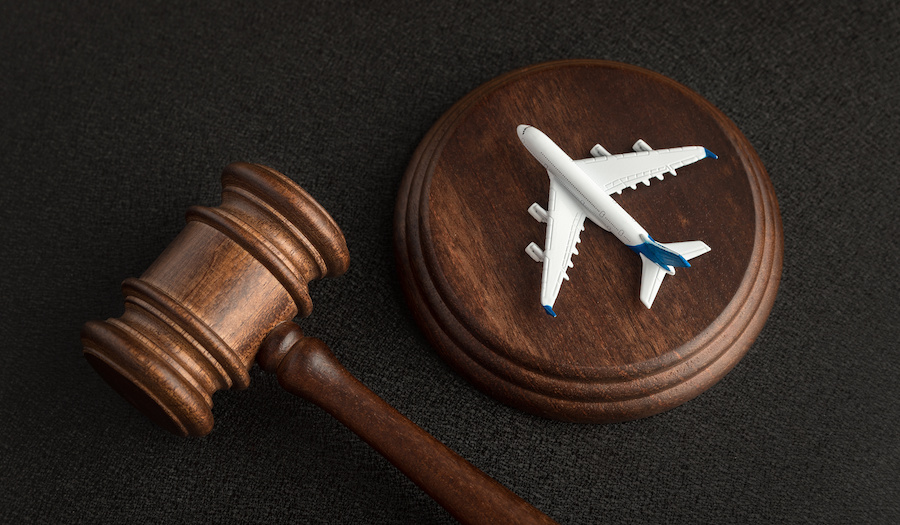Aviation is a highly regulated industry globally, and Nigeria is no exception. The aviation sector in Nigeria follows strict laws and regulations to ensure safety, security, and smooth operations for all stakeholders. This guide covers Nigeria’s key aviation laws, regulatory bodies, and passenger rights, making it easier to understand the legal framework of Nigerian aviation.
Overview of Aviation Law in Nigeria
Aviation law in Nigeria primarily relies on international standards, particularly those from the International Civil Aviation Organization (ICAO). These guidelines ensure uniformity in aviation practices worldwide, allowing for safe, secure, and efficient air travel. Nigeria’s aviation laws also address the unique needs of the country, blending international standards with local regulations.
The Civil Aviation Act (CAA) of 2006 is the core legal framework for the aviation industry in Nigeria. This Act provides for the establishment of the Nigerian Civil Aviation Authority (NCAA) and grants it powers to oversee and regulate aviation activities within the country. The CAA mandates safety measures, operational standards, and passenger protections, bringing Nigeria in line with global aviation standards.
Key Regulatory Bodies in Nigerian Aviation
Several organizations oversee aviation in Nigeria, each playing a crucial role in ensuring safe and efficient air travel:
Federal Ministry of Aviation: This ministry formulates policies for Nigeria’s aviation sector. Working closely with the NCAA, it supports infrastructure development and policy planning to meet industry needs.
Nigerian Civil Aviation Authority (NCAA): This is the main regulatory body responsible for enforcing aviation laws and ensuring airlines comply with safety, financial, and operational standards. Established under the Civil Aviation Act, the NCAA aligns Nigeria’s regulations with ICAO guidelines and is in charge of issuing licenses to airlines, certifying aircraft, and inspecting facilities. Nigerian Airspace Management Agency (NAMA): NAMA provides air traffic and navigation services, ensuring the safe movement of aircraft within Nigerian airspace.
Federal Airports Authority of Nigeria (FAAN): FAAN manages airports across Nigeria, maintaining facilities and providing services to ensure compliance with international standards.
Accident Investigation Bureau (AIB): The AIB investigates aviation accidents and incidents, operating under the Accident Investigation Bureau Establishment Act. Its findings are used to improve safety and prevent future occurrences.
Key Aviation Laws and Regulations
Nigeria’s aviation regulations cover many aspects of the industry, from aircraft safety standards to passenger rights. Here are the major laws and regulations governing the sector:
Primary Legislation
Civil Aviation Act (CAA) 2006: This Act serves as the foundation for all aviation laws in Nigeria. It authorizes the NCAA to regulate and oversee aviation activities, including licensing, safety protocols, and passenger rights. The CAA aligns Nigeria with global aviation standards by incorporating ICAO regulations and other international treaties.
Nigerian Civil Aviation Regulations (NCAR): Enforced by the NCAA, these detailed regulations implement the Civil Aviation Act. The NCAR outlines specific requirements for airline operators, personnel licensing, aircraft maintenance, and safety protocols. They are periodically updated to stay in line with international standards set by ICAO.
International Conventions
Nigeria is a signatory to several international conventions, which heavily influence its aviation laws:
Montreal Convention (1999): This convention focuses on passenger rights in international air travel, particularly for cases of flight delays, injuries, or lost baggage. Nigeria has adopted these standards to protect passengers and ensure airlines are held accountable.
Chicago Convention (1944): This landmark treaty underpins global aviation standards and is managed by ICAO. It sets guidelines for airspace rights, aircraft registration, and safety protocols. Nigeria incorporates these principles into its national regulations to ensure a standardized approach to aviation safety and security.
Passenger Rights in Nigerian Aviation
Nigeria has specific laws and regulations to protect passenger rights, providing clear rules on what passengers can expect and how they should be treated by airlines. These rights are primarily laid out in the Nigerian Civil Aviation Authority Consumer Protection Regulations, which include:
Right to Care and Assistance: Airlines must provide basic care, such as accommodation and meals, in cases of significant delays or cancellations.
Right to Information and Compensation: Passengers are entitled to accurate information about flight schedules, terms, and conditions. If a flight is delayed, cancelled, or if a passenger is denied boarding, they may be eligible for compensation or alternative travel arrangements.
Handling of Lost or Delayed Baggage: Passengers have the right to compensation for lost or delayed luggage, with airlines required to provide assistance in tracking down missing items.
Safety and Security Regulations
Aviation safety is a top priority, and Nigeria has strict standards in place for airlines, airports, and other operators:
Aviation Security Regulations: Nigerian law mandates that all airports, airlines, and related facilities maintain strict security measures. These regulations cover everything from passenger screening to handling in-flight emergencies, ensuring the safety of both passengers and staff.
Airworthiness Standards: Aircraft used in Nigeria must meet rigorous airworthiness standards, including routine inspections, maintenance, and certification. These standards are aligned with ICAO and enforced by the NCAA to guarantee safety.
Environmental Standards
Environmental impact assessments are essential for aviation operations in Nigeria. Nigerian aviation law incorporates ICAO’s environmental standards to reduce pollution, control emissions, and manage noise around airports.
Challenges in Nigerian Aviation Law and Regulation
Despite a strong legal framework, Nigeria’s aviation industry faces several challenges:
Enforcement: Regulatory bodies face challenges enforcing standards uniformly, especially with smaller or private airline operators.
Limited Funding: Insufficient funding affects infrastructure, maintenance, and safety measures, especially at smaller airports.
Capacity and Infrastructure: Nigerian airports often operate beyond capacity, and some facilities need modernization to handle increased air traffic.
CONCLUSION
Nigeria’s aviation laws and regulations create a framework that promotes safety, security, and efficiency in the industry. While the sector faces challenges, ongoing efforts by the Nigerian Civil Aviation Authority and other regulatory bodies are crucial in ensuring that Nigeria’s aviation industry aligns with international standards. Whether you’re a passenger, airline operator, or stakeholder, understanding these regulations helps you navigate Nigeria’s aviation landscape confidently.










